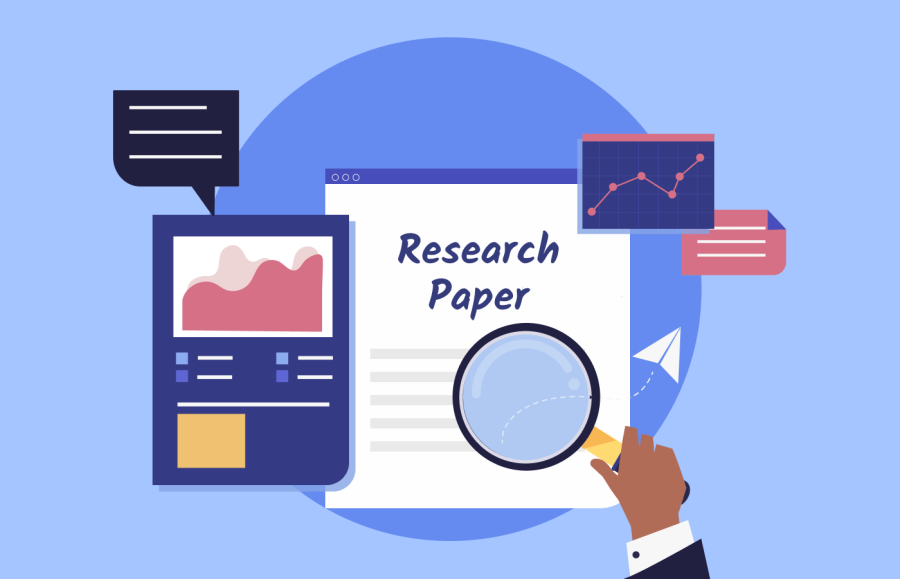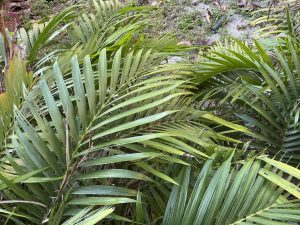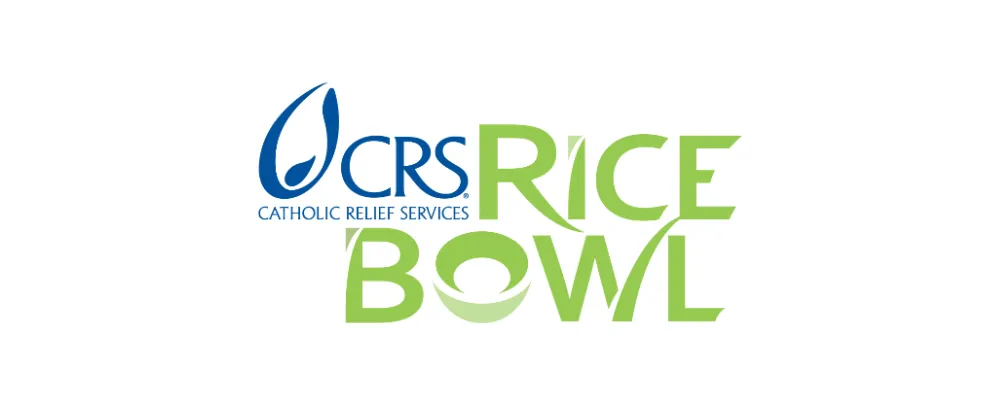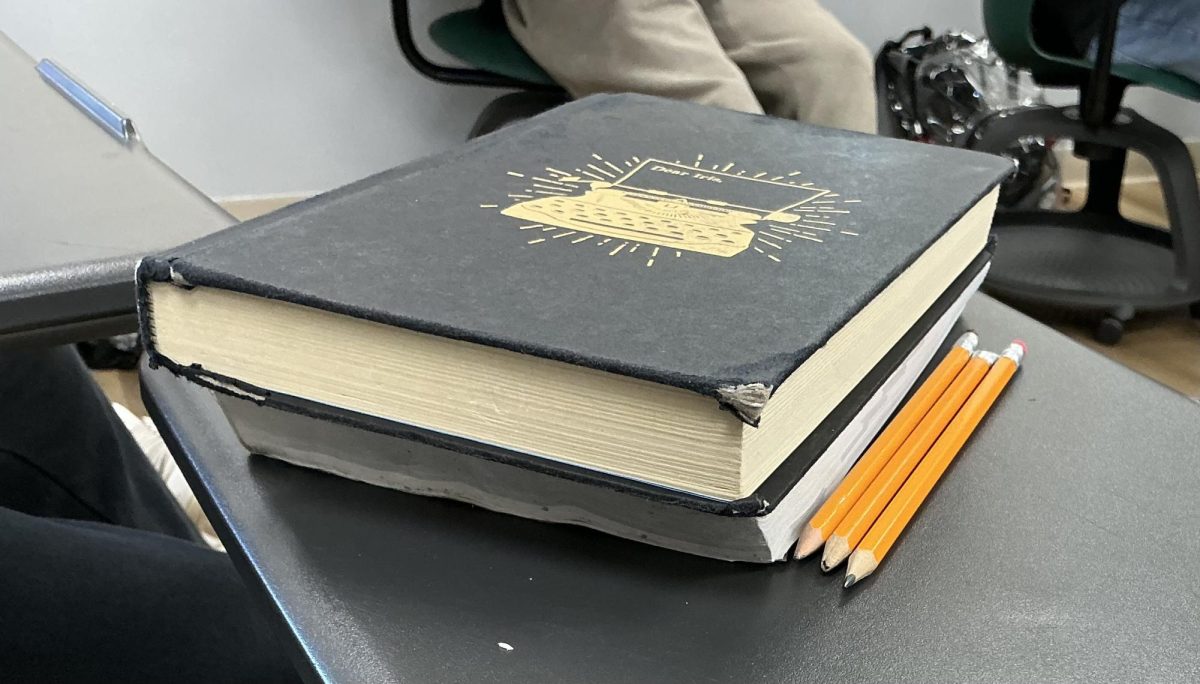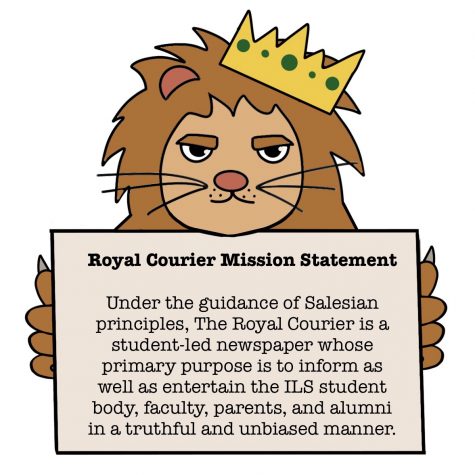5 Ways to Help You Write the Best Research Paper
February 22, 2022
Often, the second semester is thought of by all students as “research paper season.”
Okay, I’ll be honest: I made up that title, but really generally speaking, a lot of English classes and even some history classes are assigning or have already assigned their students the yearly required (and dreaded) research paper.
It goes without saying that these things can be a major pain for all students and teachers, so to remedy that (at least on the student side), I’ve consolidated a few tips that will (hopefully) make the research paper process hurt a little less. That way it won’t be so painful for us students to do, and for our teachers to grade.
1. Choose a practical topic:
A lot of times, when research papers are assigned, their topics aren’t specified. The teacher will give you a vague, overall topic to cover, but the actual question being asked and answered is for you to come up with. If that’s the case for you, be sure to find a topic that is clear cut. It’s true that there’s a lot of topics out that are super interesting and waiting to be written about, but if they’re complicated and convoluted, it might be best to skip it for one you know you can write about well to get that A.
But at the same time, pick a topic that’s interesting to you. If you start researching your topic and become bored, chances are you won’t want to write an entire paper on it. Part of this process is finding the middle ground. Interesting, but not to the point that it gets complicated. Remember you’re not writing your official dissertation here, so it’s ok if the topic isn’t your most groundbreaking, intellectual discovery you’ve ever made.
2. Have an abundance of sources:
The real magic of a research paper comes in the sources. Without good source material to synthesize with other sources and your thesis, your paper will fall short.
But how do you find good sources? Luckily for us, we don’t have to go to a library or newsstand. We can use the glorious internet. Usually, a plain old Google search will suffice, yielding pretty credible online sources that can easily be saved to your device for you to look at again later.
However if you really want to get official, or if your teacher asks for it, JSTOR is an excellent source and is available to all ILS students as an app on our iPads. JSTOR is basically an online library of scholarly work. For example, things written in the 60s by a real doctor, remastered to fit online, can be easily accessed there. JSTOR has source material for all subjects, whether your paper is science, history, or literature-based.
If you don’t want to use an online source, remember that movies, books, magazines, newspapers, slideshows, lectures, photos, graphics, and even personal talks with your teacher can also be cited as official source material for your paper. However the citation format changes depending on what kind of media you’re using, but more on that later.
Finally, source-wise, it’s always great to get more than what’s asked of you, just in case one isn’t accepted, one turns out to disagree with your thesis, or some instance where it’s good to have backup. If your teacher says 3, get 4 or 5, and so on. Always make sure they’re reliable. Remember in middle school when they’d tell you that .gov, .edu, and .org websites are the best? Use that rule! Doesn’t mean .com can’t ever be used, but they need a little more checking from you before being officially cited.
3. Cite smarter, not harder:
Probably the most painstaking part of the research paper process, more than the actual writing of the paper, is doing proper citations. For many English and history classes, you’ll probably be asked to cite in MLA format, while science classes ask mostly for APA. Whatever form you’re asked to cite your sources in, it’s important to work efficiently to get them done.
Luckily, many websites are out there that can assist us students with citations of any form. Some popular and generally trustworthy ones are:
citationmachine.net
citethisforme.com
easybib.com
bibliography.com
bibme.org
All these websites work similarly. You head to the website and type in whatever source you’re using, and the website will generate a citation for you in the proper format. It’s important to select the kind of source you wish to cite, or it will put it in the wrong way in the end. So, if it’s a website, make sure you’re citing it the website way. Same way for books, movies, and other viable source material.
One thing to be aware of is that sometimes, these websites are prone to make small mistakes in the exact formatting way. Sometimes you or even your teacher won’t catch them. But in the event that your teacher is incredibly attentive to detail and usually notices or checks for mistakes in this part, and you don’t want to lose points on something so silly, I’d certainly double check. Because they’re run on a strict formula, they may miss small things and not always be up to date with whatever the “official” citing formula is all the time. But there’s easy ways to catch these mistakes, and it only requires minimal extra effort on our part.
To double check a citation from these websites, I highly recommend using the Purdue Writing Lab website (owl.Purdue.edu). I’m sure your teacher has recommended it to you many times before, but they’re actually right about this one— it’ll tell you the exact correct way to do your sources, and just double checking can save you from losing a couple points.
4. Make sure your thesis gets the job done:
This one is a bit hard to describe, but one of the most important things in a research paper. You all know what a thesis is supposed to do, that is, summarize exactly what you’ll be answering in the paper in minimal detail and yet leaving nothing out. It’s supposed to somehow encompass your exact point on the topic while also taking your research and also opposing research into account.
It sounds incredibly daunting, I know, but luckily, it you just break it down, writing a thesis doesn’t have to be so arduous. If you’ve ever taken a writing class, like AP Lang, you know that if the thesis isn’t good, the paper won’t be either.
So to write a simple thesis, start by thinking, “how do I want to answer this topic?” Once you’ve answered that, think of some ways you can support your answer being the right one, preferably supported by your sources. Try to articulate that into words. Usually, a “closed thesis” has 3 points, and is written in a list-like sentence separated by commas. But if yours doesn’t quite sound like that, it’s ok to do an “open thesis” as well. Open theses may not have exactly 3 points, but still show the main answer to the paper’s question.
There’s many tutorials online that can also assist in the thesis writing process if you want extra help.
5. Keep it concise:
Typically, your teacher will give you a minimum of words or pages your paper needs to be. Whether it’s 3, 5, or 10 pages, make sure not to stray too far over that mark. Teachers have a lot of papers to read, and I don’t think they’d be incredibly excited if they told their students 3 pages and you show up with 6.
I don’t mean to discourage those of you who are more verbose, because if your paper needs to be longer for the purpose of actually furthering and confirming your point, by all means, keep writing, but make sure that extra stuff is worth reading.
But for those of us following a foolproof formula, keep it to a minimum. Don’t fill your paper up with maybes, what ifs, and points not expounded upon. A paragraph is 5-7 sentences (unless your teacher says it’s more), so keep it that way. You’ll just tire yourself out if you keep writing to try and earn some extra praise.
That all being said, those are some of the most easy to do tips out there to improve your research paper and make it easier to put together. I hope you found them helpful, even if they’re a bit well-known. It’s true that research papers can be bothersome, but if you apply yourself and try to work efficiently with these tips, it shouldn’t be so bad.


